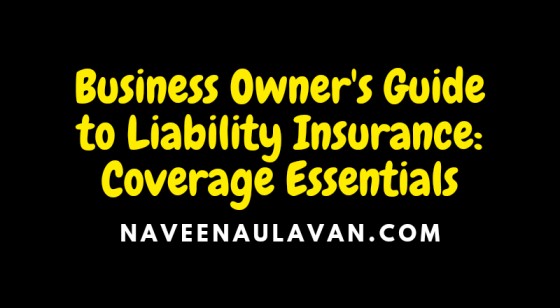As a business owner, it is essential to protect your company from potential risks and liabilities. Liability insurance is a crucial component of any comprehensive business insurance plan. In this guide, we will explore the coverage essentials of liability insurance, helping you understand its importance, types of coverage, and how it can safeguard your business.
Understanding Liability Insurance
What is Liability Insurance?
Liability insurance is a type of insurance that provides financial protection to businesses in the event they are held legally responsible for bodily injury, property damage, or other incidents caused by their actions, products, or services.
Importance of Liability Insurance for Business Owners
Having liability insurance is vital for business owners, as it can protect them from significant financial losses and potential legal liabilities. Without this coverage, a single lawsuit or accident could threaten the survival of a company.
Types of Liability Insurance Coverage
1. General Liability Insurance
General liability insurance is the foundation of business liability coverage. It provides protection against third-party claims for bodily injury, property damage, and advertising mistakes. This coverage is essential for businesses that interact with clients or the general public.
2. Professional Liability Insurance
Professional liability insurance, also known as errors and omissions (E&O) insurance, is designed for businesses that provide professional services or expert advice. It safeguards against claims of negligence, errors, or omissions that result in financial losses for clients.
3. Product Liability Insurance
Product liability insurance is critical for businesses involved in manufacturing or selling products. It covers legal expenses and damages resulting from injuries or property damage caused by a defective product.
4. Cyber Liability Insurance
In the digital age, businesses face cyber risks such as data breaches and cyberattacks. Cyber liability insurance helps cover the costs of data breaches, including notification expenses, legal fees, and financial losses suffered by customers or clients.
5. Employment Practices Liability Insurance (EPLI)
EPLI provides coverage against claims related to employment practices, such as wrongful termination, discrimination, or harassment. It protects businesses from potential lawsuits filed by employees or former employees.
Factors to Consider When Choosing Liability Insurance
1. Business Size and Industry
The size and nature of your business will influence the type and amount of liability coverage needed. High-risk industries may require more extensive coverage than low-risk businesses.
2. Coverage Limits
Carefully consider the coverage limits of your liability insurance policy. Inadequate coverage could leave your business exposed to significant financial risks.
3. Deductibles
Deductibles are the amount you pay out of pocket before your insurance coverage kicks in. Evaluate deductibles to ensure they are manageable for your business.
4. Exclusions
Understand the exclusions in your policy to know what incidents or scenarios are not covered by your liability insurance.
Conclusion
Protecting your business with liability insurance is an essential aspect of risk management. By understanding the coverage essentials and choosing the right policies, you can shield your business from potentially devastating financial losses. Consult with an experienced insurance professional to tailor a liability insurance plan that best suits your business needs. Remember, a comprehensive liability insurance policy is an investment in the long-term success and security of your company.
